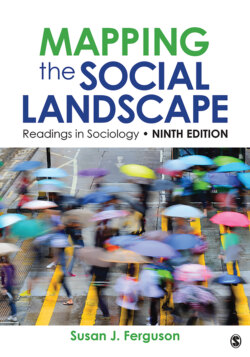Читать книгу Mapping the Social Landscape - Группа авторов - Страница 94
На сайте Литреса книга снята с продажи.
Parents and the Social Construction of Gender
ОглавлениеScholars of gender and childhood are increasingly interested in the role of peers in the process of gendering children, viewing children themselves as active agents rather than passive recipients of adult influence. However, they also continue to recognize parents as important in the gendering of children (Coltrane and Adams 1997; Maccoby 1998). Lytton and Romney’s (1991) metaanalysis of the substantial quantitative and experimental literature on gender and parents’ behavior toward their sons and daughters documents that parents do not always enforce gendered expectations for their children, nor do they consistently treat sons and daughters differently. Some researchers have highlighted subgroups of parents who actively seek to disrupt traditional gendered expectations for their children…. But as a whole, the literature documents definite parental tendencies toward gendered treatment of children. These tendencies are evident beginning at birth and in the early childhood years. For example, the literature indicates differential treatment of sons and daughters in terms of parental selection of toys … clothing … and décor for children’s rooms … as well as parental emphasis on emotions versus autonomy in family stories. Across this literature, gender typing by parents is well documented, as are two patterns within that gender typing. First, fathers appear to engage in more differential treatment of sons and daughters and more enforcement of gender boundaries than do mothers; second, for both mothers and fathers, such boundary maintenance appears to be more evident in the treatment of sons than daughters (… Coltrane and Adams 1997; Maccoby 1998).
The large literature on gender typing by parents is predominantly quantitative and often based on experiments, closed-ended surveys, and/or counting the frequency of various parental behaviors. This literature is valuable in documenting the role that parents play in gendering their children. However, it does less to explore the nuances of how parents make meaning around gender, to document in detail what kinds of attributes and behaviors are accepted and sanctioned by parents of young children, to reveal what motivates parents as they participate in the social construction of their children’s gender, or to illuminate how aware parents are of their role in these processes. Parents are clearly gendering their children, but what are the subtleties of the gendered outcomes they seek to construct, why do they seek to construct those, and how aware are they of that construction process?
